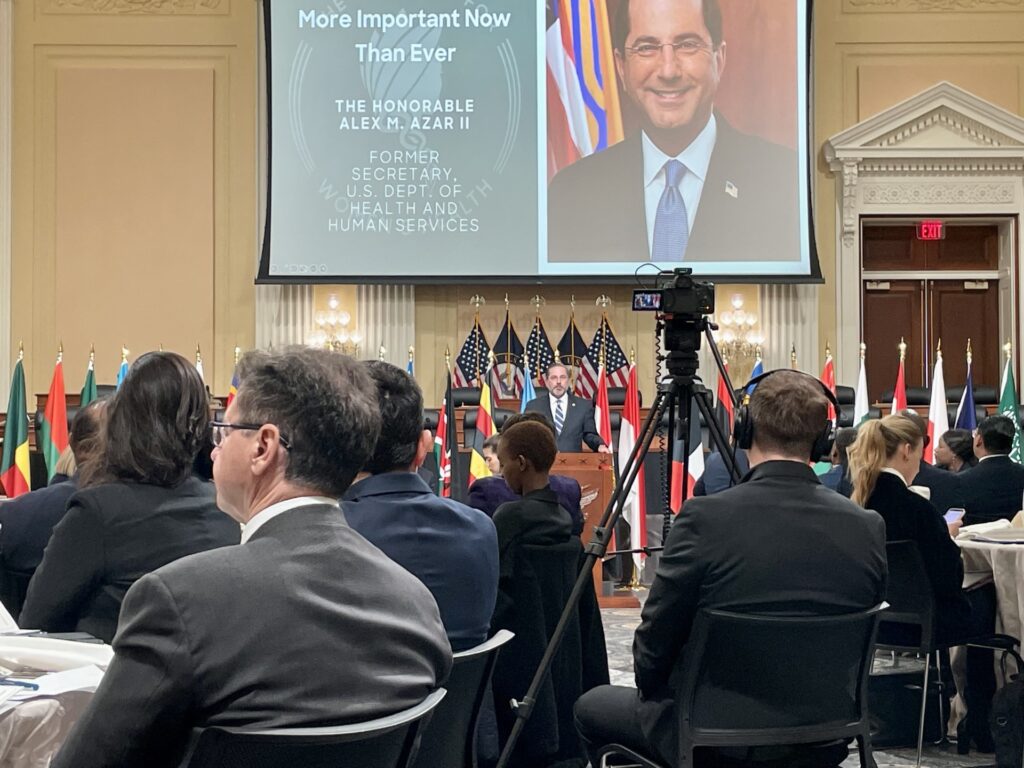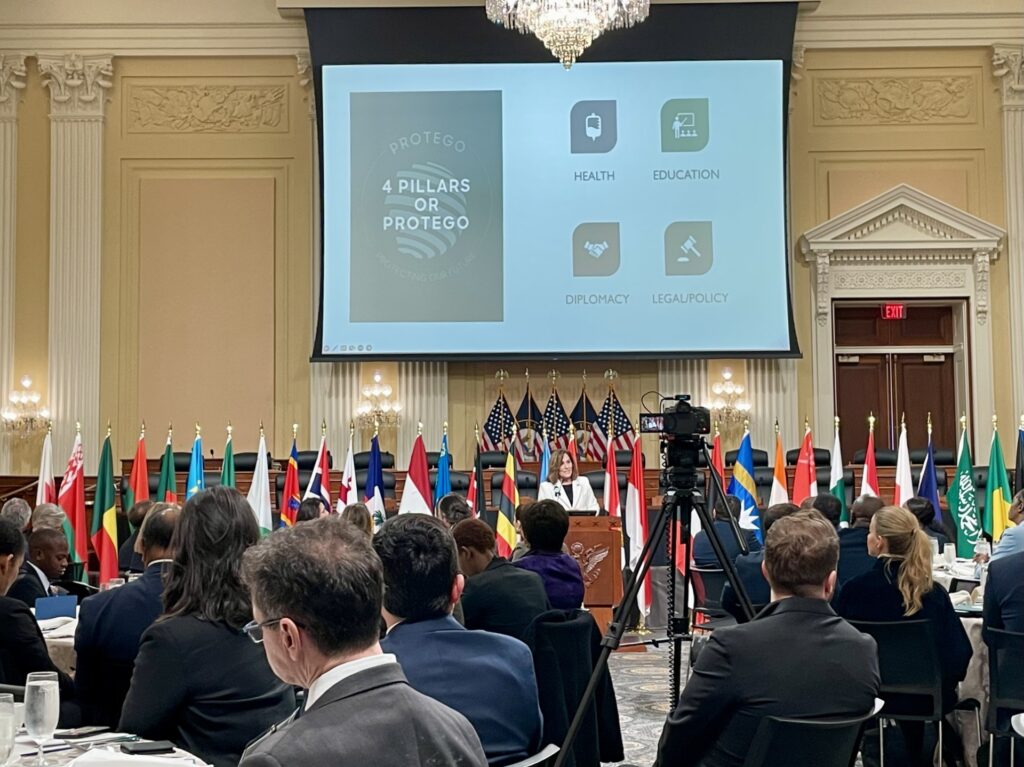U.S. lawmakers, foreign dignitaries and representatives of various organizations recently gathered in Washington, D.C., to celebrate a growing coalition of 36 nations that support the health and advancement of women while declaring that there is no international right to abortion.
“Abortion is not a human right, and we would add it’s not healthcare,” Valerie Huber, president and CEO of The Institute for Women’s Health (IWH), a women’s health policy organization, said. “But we don’t dictate that countries say that life begins at conception. … What we do say is, it’s the sovereign right of a country to make those decisions and it shouldn’t be an external actor.”
Huber spoke with Our Sunday Visitor at the gathering for the third annual Geneva Consensus Declaration (GCD) commemoration luncheon, an IWH-sponsored event, on Oct. 24. The declaration aims to promote the health and well-being of women and girls, defend the family as the foundation of society, and protect the sovereign right of nations to support these values.
The declaration also reaffirms the inherent “dignity and worth of the human person” and that “every human being has the inherent right to life.”
In 2020, 32 nations — including the United States — signed on, representing more than 1.6 billion people. The U.S. later withdrew its support under the Biden administration.
Today, the GCD has 36 coalition members. At the event, Huber announced the preliminary approval to add a 37th member: The Republic of Chad in central Africa.
U.S. lawmakers and leaders also expressed hope that, one day, the U.S. would rejoin.

“While the United States is temporarily no longer a signatory, I express my great confidence that we will return,” Alex Azar, former secretary of the U.S. Department of Health and Human Services, said at the event.
Coinciding with the event, Huber shared that members of Congress are introducing a resolution in support of the GCD in the House and Senate that, among other things, asks President Joe Biden to join once more.
New developments in 2023
Huber, who served as the architect of the GCD while at the U.S. Department of Health and Human Services, revealed what made this year’s luncheon different from those in the past.
“I am seeing a growing momentum,” Huber said. “We have more registrants than we have ever had. … We have more countries than we have ever had before. We have more than 40 countries represented today.”
The day also marked the public launch of a four-part model by IWH called Protego, which translates from Latin to mean “to defend and protect.” The model promises to help countries flourish through health, education, law and international engagement.
As a part of this model, Huber described the creation of the Women’s Optimal Health Framework (WOHF).
“We realized that there is not a framework that ministries of health in countries around the world can adopt that is life-affirming through every stage of life, that is low-cost, high-impact, and that has some of the unique characteristics that this framework had,” Huber said. “So we poured over the research to find what are the most effective ways to make the greatest difference in the lives of women and girls — and families, really.”

Optimal health, she explained, not only refers to physical health but also intellectual, emotional, and spiritual health.
“We knew that it needed to have a cultural context because we could devise things that might work here in the United States, but it might not work in a rural area where there are no clinics or even running water perhaps,” Huber added. “So we stood up an International Health Council representing different regions of the world, health professionals that have, over the last number of months, been giving their insights on how can we make this work in this region — every region of the world.”
At the event, IWH awarded President Alejandro Giammattei of Guatemala, who was unable to attend in person, with its Distinguished Award of International Honor. The award comes after the IWH partnered with Guatemala to create a prototype of Protego.
A focus on the pro-life issue
All three Republican senators who spoke at the event, where they served as honorary co-chairs, touched on the pro-life issue in relation to the GCD.
As Senate Pro-Life Caucus Chair, Sen. Cindy Hyde-Smith of Mississippi opened her speech by expressing pride that her state’s legislation led to the overturning Roe v. Wade, which previously legalized abortion nationwide.
“Life begins at conception,” she said at one point, “and should be protected.”
Sen. Steve Daines of Montana, who introduced the Senate resolution in support of the GCD, as in years past, also spoke.
“Here we see in our country and countries around the world, this pro-abortion, anti-family radicalism that is threatening our way of life,” he said, stressing the GCD’s importance.
For his part, Sen. James Lankford of Oklahoma highlighted the GCD’s core values.
“We believe in the value of family. We believe in the education and the progress of women around the world,” he said. “We believe in the value of every single person.”
He concluded: “We don’t believe some people are disposable and some people are valuable, whether that’s an adult or whether that’s a child in the womb.”

